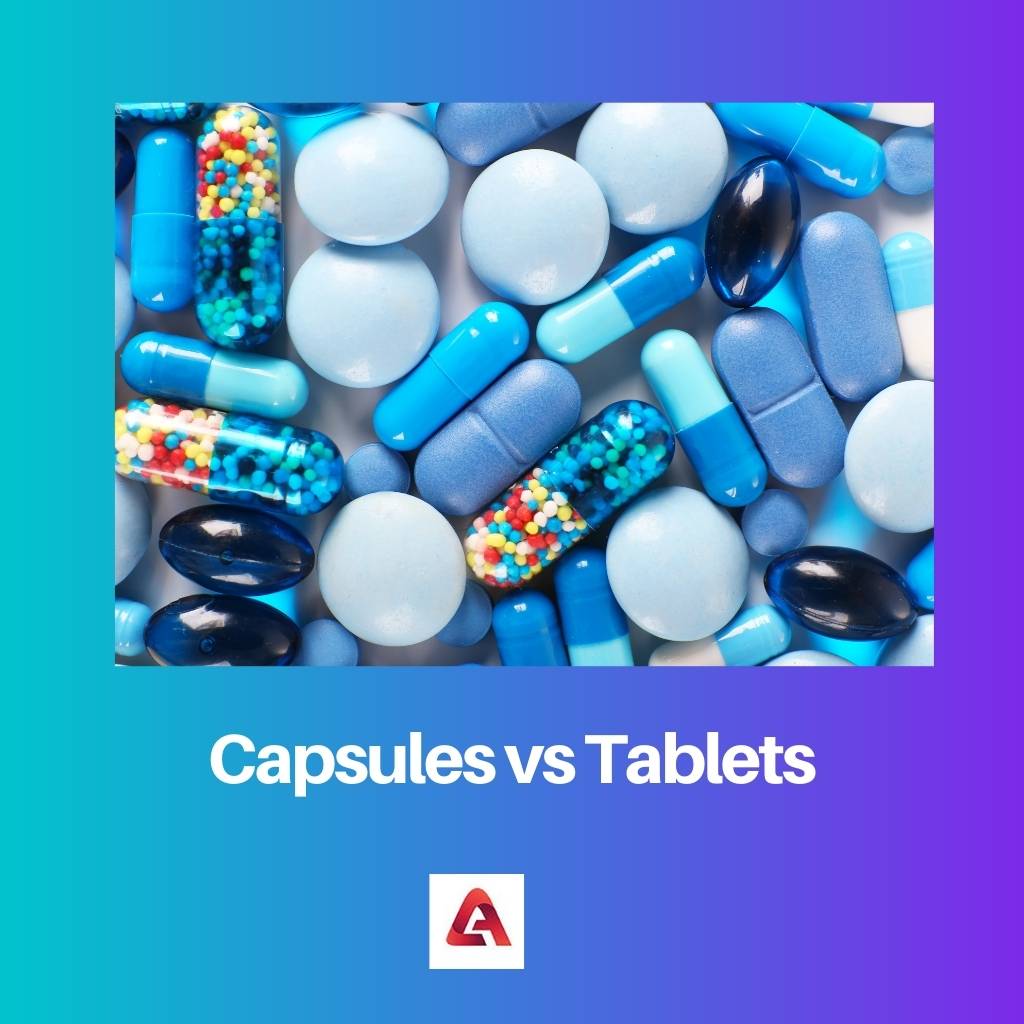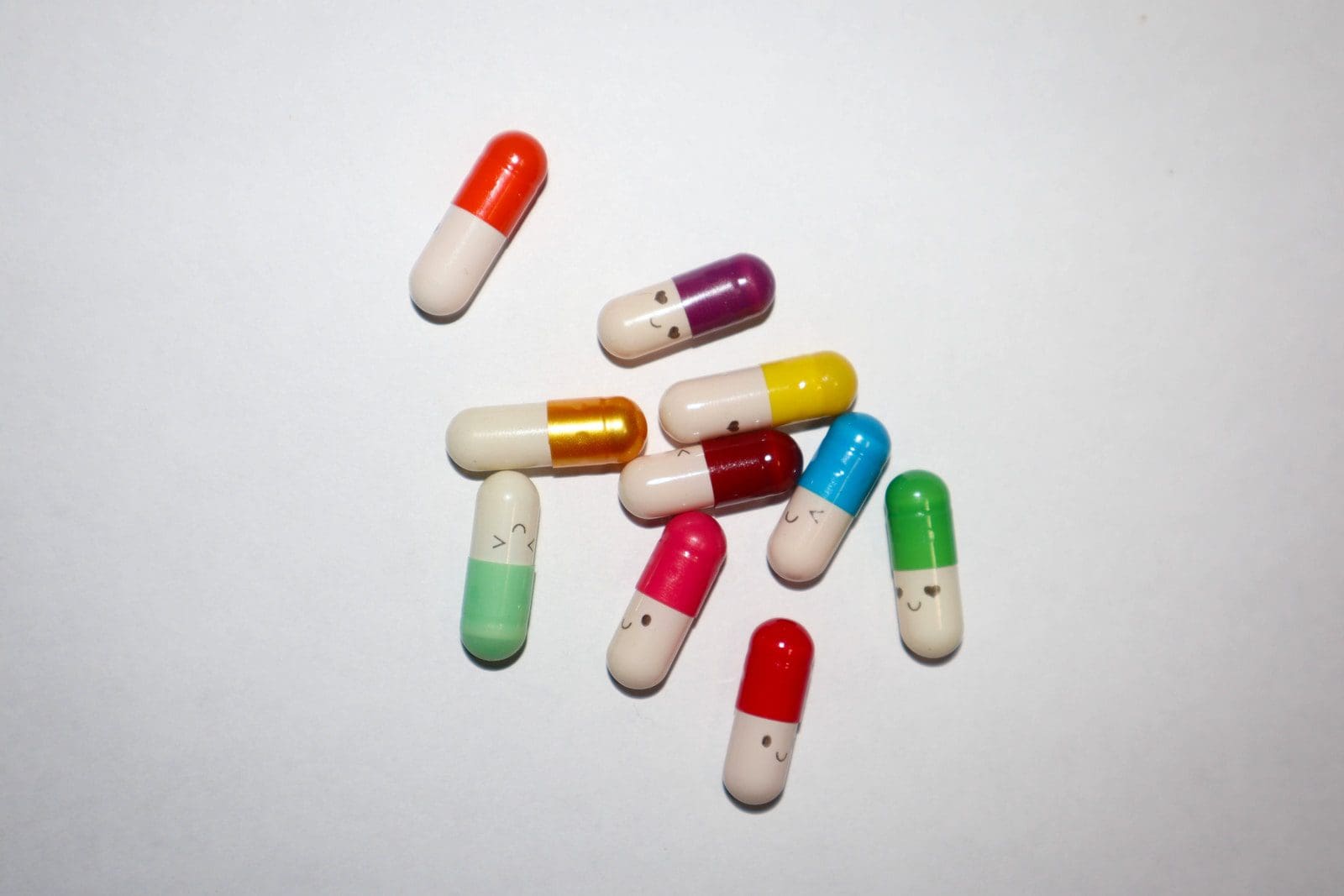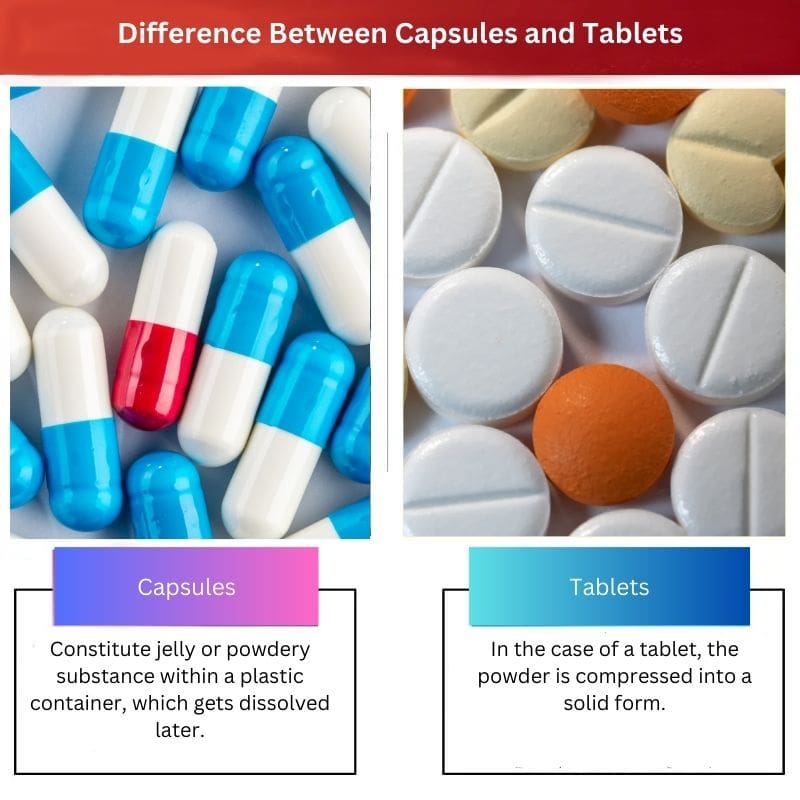Regarding oral medication, both capsules and tablets are trendy choices. They deliver a specific supplement or drug into your digestive tract.
Although both capsules and tablets work parallelly, there are some critical differences between them. It’s better to know which one to choose for better suitability for your body.
Key Takeaways
- Capsules and tablets are two different forms of medication. Capsules are a type of medication that comes in a small gelatin shell filled with either powder, liquid, or small pellets, while tablets are compressed powders or granules.
- Capsules are easier to swallow than tablets, as they are smoother and can be swallowed with less water. The body also absorbs them faster than tablets, as they dissolve quickly.
- Tablets are more stable and have a longer shelf life than capsules. They are also easier to manufacture and less expensive than capsules, which require more specialized equipment and materials.
Capsules vs Tablets
Capsules are gelatine shells filled with a powdered form of medication and are accessible for the body to absorb. They are also easier to swallow for people who have difficulty with larger tablets. Tablets are made by compressing medication into a solid form. They are easier to manufacture and store than capsules and can contain different types of medicines in a single dose.

Comparison Table
| Parameters of Comparison | Capsules | Tablets |
|---|---|---|
| Form | Constitute jelly or powdery substance within a plastic container, which gets dissolved later. | In the case of a tablet, the powder is compressed into a solid form. |
| Division | Capsules can not be cut into any number of pieces. | Tablets can be broken into two or cut into pieces as required. |
| Absorption | Capsules get absorbed into the bloodstream as soon as they enter. | Tablets do not get absorbed immediately into the bloodstream. |
| Shelf Life | Capsules have a lesser shelf life. | Tablets have more or higher shelf life. |
| Potential | Capsules retain their potential for less time. | Tablets retain their potential for a longer time. |
| Availability | Capsules are available in one size only. | Tablets can be found in different sizes and shapes. |
| Price | Capsules are expensive. | Tablets are relatively cheaper than capsules. |
| Intake method | Capsules can be swallowed easily. | Tablets may create a problem for kids while swallowing. |
| Action | Capsules work faster than tablets. | Tablets take time to show their response. |
What are Capsules?
Capsules are those medications that are enclosed within an outer shell. The outer surface gets dissolved inside the bloodstream after it breaks down in the digestive tract. It works almost similar to tablets.
Capsules are mainly of two types. Some capsules are hard-shelled, whereas some capsules are soft-shelled.
The hard-shelled capsules are made up of two halves. Both halves make a closed casing, inside which dry medication or drug is present in pellet or powder form.
Sometimes medication inside the capsules is in liquid form, too and is thus called LFHC or liquid-filled hard capsules. Soft gel capsules are slightly wider and semi-transparent in appearance.

What are Tablets?
Tablets are one of the common types of pills. Their price is not much high. Tablets are safe and affordable, and they deliver effective ways as oral medication.
The pills are manufactured by compressing the powder into a smooth-coated pill which later dissolves inside the digestive tract. Other additives are also in tablets to improve their texture, appearance, and taste.
Tablets are available in several shapes and sizes. They can be oblong, round, or even disc-shaped. The tablets can be swallowed in half by breaking them into two. Sometimes the tablets are made specifically to get digested in the small intestine.
Some tablets can be chewed directly and called ODT or orally dissolved tablets. They get dissolved when coming in contact with human saliva.



The article is quite engaging and informative.
I agree, this was an interesting read.
I don’t think I agree with the point that tablets take longer to show their response. Shouldn’t it depend on the specific medication?
I believe this is an interesting article but that part definitely needs more explanation.
I agree, it should depend on the medication and not the form itself.
Excellent article that gives a clear comparison between capsules and tablets, I found it very informative.
I totally agree, this article provides very useful information about capsules and tablets.
Indeed, very informative and well explained.
Informative piece. I particularly liked the detailed comparison table.
Yes, the comparison table was very useful.
The information about the hard-shelled and soft gel capsules was enlightening.
True, very interesting.
Definitely, the article does a great job providing clear information about the differences.
The article presented very useful information.
Definitely, very informative.
I learned a lot from reading this.
I never knew the tablets could be chewed directly, very interesting information.
Indeed, interesting. This article really provides useful and intriguing details.
Yes, thought-provoking and informative.
Although this article is a bit technical, it is definitely informative.
The comparison between capsules and tablets was really insightful, I learned a lot.
I think the article did a great job at explaining the differences.
Yes, the article definitely broadened my understanding of the topic.
I found this article insightful and valuable. It offers a deep understanding of capsules and tablets.